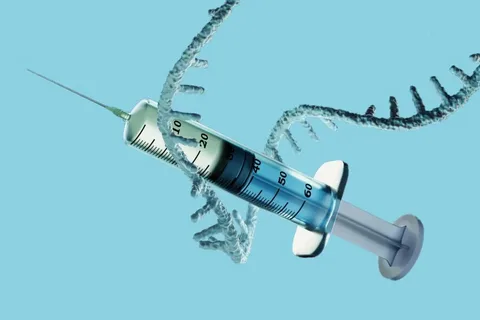A groundbreaking collaboration between the University of Central Florida (UCF) and biotech company Vaxxinity is focused on developing vaccines to prevent and mitigate muscle and bone weakening in space travelers and aging seniors. The research aims to address the common health problem of atrophy, which leads to the loss of bone and muscle in individuals experiencing long-term spaceflight or aging.
Space travel has been known to cause atrophy, as astronauts living in zero gravity environments often experience muscle and bone deterioration. Similarly, as individuals age, their bones and muscles tend to weaken, increasing their risk of injuries from falls. Therefore, developing interventions to counteract atrophy is essential for both space explorers and the aging population on Earth.
The University of Central Florida, located in Orlando, has a long history of supporting the space program and is continuing its mission through the College of Medicine’s collaboration with Vaxxinity. By studying the effects of Vaxxinity’s immunotherapies on proteins in the body that could influence bone and muscle growth, researchers hope to develop a vaccine that can help prevent or regain muscle loss caused by injury, immobility, or space travel.
According to Dr. Melanie Coathup and Dr. Michal Masternak, professors at UCF’s College of Medicine, this vaccine has the potential to improve the quality of life for both individuals on Earth and in space. Dr. Coathup and Dr. Masternak envision a future where this vaccine can help people live better and healthier lives as they age, while also supporting the success of space missions.
If all goes well, human clinical trials for the vaccine could begin as early as 2025, according to Lou Reese, the co-founder and executive chairman of Vaxxinity. The collaboration between UCF and Vaxxinity has the potential to revolutionize space medicine research and uncover valuable insights that can benefit the aging population on Earth and future space travelers.
The need for research into healthy aging is increasing in the United States, where the population of individuals aged 85 and older is projected to triple by 2060. Florida, in particular, has a significant aging population, with over 5.5 million residents aged 60 and older, outnumbering the senior population of 20 other states combined. By 2045, Florida is expected to have more than 8.4 million older adults, accounting for over 30% of the state’s population, according to the state’s plan on aging.
The collaboration between UCF and Vaxxinity aligns with Florida’s interest in supporting the health and well-being of its aging population. The state’s tourism-driven economy, which includes attractions like NASA’s Kennedy Space Center in Cape Canaveral, emphasizes the importance of space exploration and innovation. Cape Canaveral, in particular, witnesses more than 1.5 million visitors annually, with many individuals eager to learn about space and potentially witness rocket launches.
The implications of developing a vaccine to reduce bone and muscle deterioration extend beyond Earth. As space agencies like NASA plan for future missions to the moon and Mars, minimizing the health strains associated with space travel becomes a priority. Astronauts currently exercise for approximately two hours each day to combat the effects of zero gravity on their bodies, including bone and muscle loss. However, finding ways to address atrophy more effectively will be crucial for longer space missions.
In a recent study conducted in 2022, researchers found that astronauts who spent six months on the International Space Station experienced significant bone loss. This study, which included 17 astronauts, revealed that the bone mineral density in the tibia, one of the lower leg bones, decreased by 2.1%, comparable to bone loss in older adults over two decades on Earth. Furthermore, the astronauts only recovered about half of this bone loss after one year of being back on Earth.
By conducting research in the extreme environment of space, scientists can gain valuable insights into the weak points of the human body and apply these findings to improve health on Earth. The collaboration between UCF and Vaxxinity holds immense promise not only for addressing the health challenges faced by space travelers but also for delivering innovative solutions for the aging population.
Lou Reese emphasized Vaxxinity’s commitment to helping humanity prepare for the future, stating that their vaccine research is only part of the puzzle. As a space exploration-focused company, Vaxxinity aims to solve fundamental problems related to space travel and long-term living. The collaboration with UCF and the support from the State of Florida exemplify a dedication to pioneering solutions in space travel, healthy aging, and age-related diseases.
Ultimately, the development of a vaccine to combat muscle and bone deterioration in space travelers and aging seniors represents a significant step towards improving health outcomes and enabling further space exploration. The collaboration between UCF and Vaxxinity signifies a commitment to scientific advancement and a promising future for both space travel and the aging population.
*Note:
1. Source: Coherent Market Insights, Public sources, Desk research
2. We have leveraged AI tools to mine information and compile it

